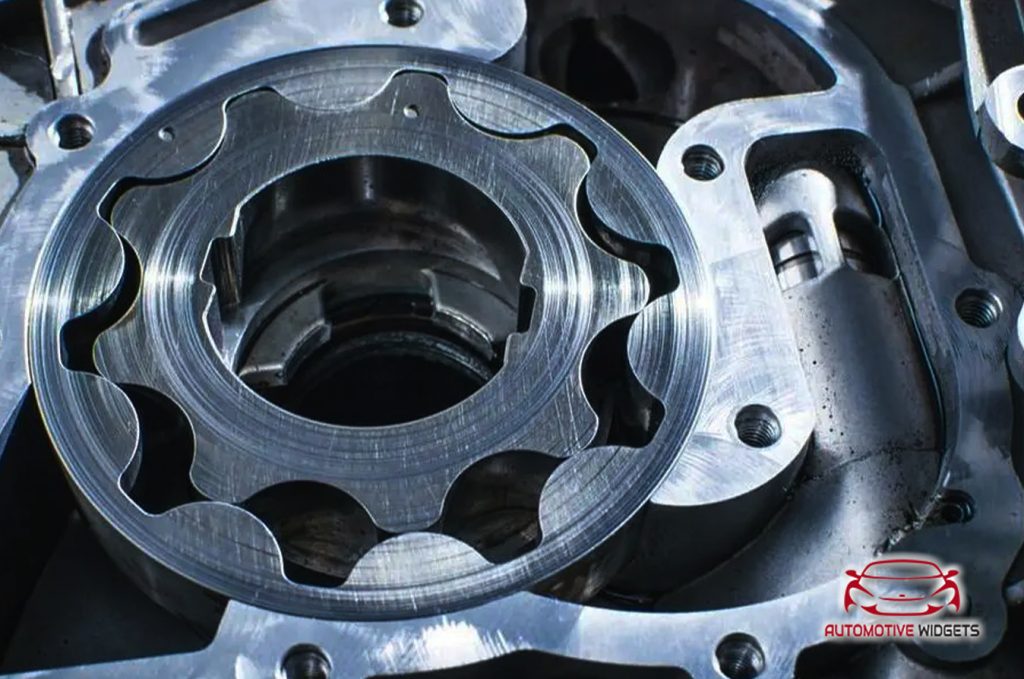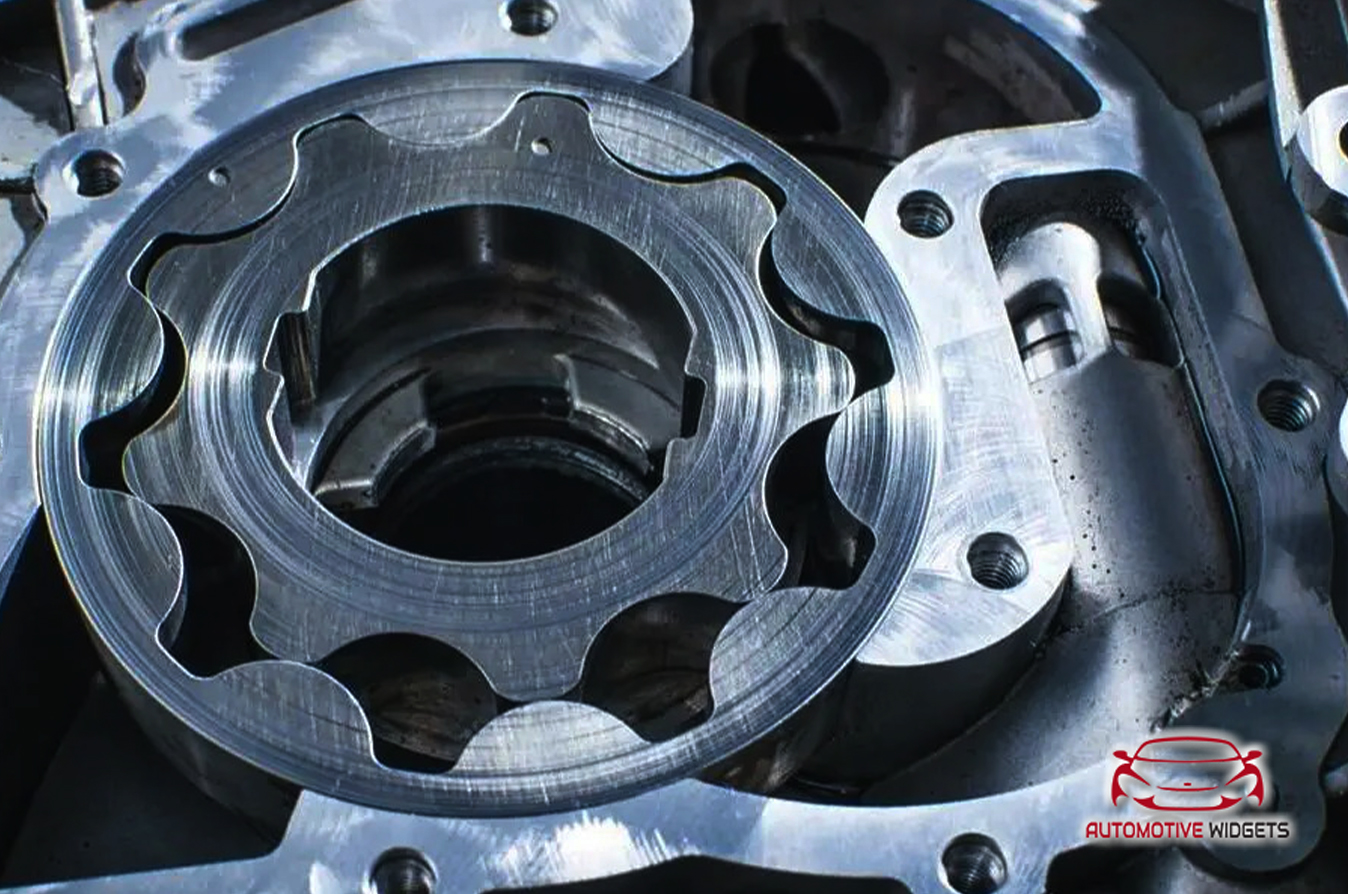One of the most common causes of oil pump failure is a loss of prime. This can happen when the engine is turned off for a period of time and the oil drains back into the pan. When the engine is restarted, the oil pump may not be able to draw enough oil up from the pan to keep it lubricated.
Another common cause of oil pump failure is wear and tear on the gears inside the pump. Over time, these gears can become stripped or damaged, which will prevent them from being able to properly pump oil through the engine.
If your car’s oil pump fails, it can cause some serious engine damage. Here’s a look at what causes oil pump failure, and how to prevent it. One of the most important parts of your car’s engine is the oil pump.
The oil pump circulates oil throughout the engine, lubricating all of the moving parts. If the oil pump fails, it can cause some serious engine damage. There are a few things that can cause an oil pump to fail.
One is simply wear and tear – over time, the moving parts in the pump can start to wear down, causing it to work less efficiently or even fail completely. Another common cause of failure is contamination – if dirt or other debris gets into the pump, it can damage the internals and cause a failure. To prevent your oil pump from failing, make sure to change your car’s oil regularly according to its recommended schedule.
This will help to remove any contaminants that could potentially damage the pump.
What Can Cause an Oil Pump to Go Bad?
There are many reasons why an oil pump may go bad. The most common reason is due to wear and tear. Over time, the gears in the pump can become worn down, causing them to not mesh properly.
This can cause a loss of pressure, which can lead to engine damage. Another common reason for oil pump failure is due to contamination. If dirt or other debris gets into the pump, it can cause it to fail.
Finally, if the oil pump isn’t properly lubricated, it can also fail prematurely.
How Common is Oil Pump Failure?
Oil pump failure is not a common occurrence in vehicles. However, when it does happen, it can be a serious problem. Depending on the severity of the failure, it may cause the engine to seize up, resulting in costly repairs or even replacement.
There are a few things that can cause oil pump failure. One is simply wear and tear over time. As parts start to wear out, they don’t work as well and can eventually fail.
This is especially true of moving parts like the oil pump. Another possible cause is contamination. If dirt or other debris gets into the oil pump, it can damage the internals and cause it to fail.
If you think your vehicle might have an oil pump problem, there are a few symptoms to look for. One is low oil pressure. If your vehicle’s oil pressure gauge reads lower than normal or if there’s a warning light on the dash indicating low oil pressure, this could be a sign of trouble with the oil pump.
Another symptom is strange noises coming from the engine bay; if you hear grinding or whining sounds, it’s worth getting your vehicle checked out by a mechanic just to be safe. If you do have an oil pump failure, unfortunately, there’s not much you can do besides get it repaired as soon as possible by a qualified professional – trying to drive without proper lubrication will only make things worse and could lead to even more expensive repairs down the line.
How Do I Know If My Oil Pump is Failing?
An oil pump is a vital component of any engine, and it ensures that lubrication is distributed evenly throughout the engine. If your oil pump begins to fail, there are a few tell-tale signs that you can look out for.
Firstly, if you notice that your engine is making strange noises, this could be a sign that the oil pump isn’t working as efficiently as it should be.
Another common symptom of a failing oil pump is an illuminated check engine light on your dashboard.
If you suspect that your oil pump might be failing, it’s important to take your car to a mechanic or dealership as soon as possible so they can diagnose the problem and replace the part if necessary. Ignoring these warning signs could result in serious damage to your engine.
Can You Drive With a Failed Oil Pump?
If your oil pump fails, it will cause a loss of oil pressure. This can lead to engine damage, so it is not advisable to drive with a failed oil pump. If your oil light comes on or you notice any strange noises coming from the engine, pull over and call for roadside assistance.
What are the symptoms of a failing oil pump?

Oil Pump Failure Signs
Oil pumps are an essential component of any internal combustion engine, and as such, their failure can lead to catastrophic engine damage. Fortunately, there are several warning signs that can indicate an impending oil pump failure, allowing drivers to take preventive measures before serious damage occurs. One of the first signs of an oil pump failure is increased engine noise.
As the pump begins to fail, it will no longer be able to effectively circulate oil throughout the engine, leading to a drop in oil pressure. This decrease in pressure will cause metal-on-metal contact between moving parts, resulting in increased noise levels. Another sign of an impending oil pump failure is leaking oil.
A failed or failing oil pump will often cause leaks around the front or rear seal of the engine block. These leaks can be difficult to spot, so it’s important to regularly check your vehicle for any signs of leakage. If you notice either of these warning signs, it’s important to have your vehicle inspected by a qualified mechanic as soon as possible.
An Oil Pump Failure Can Be Costly To Repair So It’s Important To Be Aware Of The Warning Signs!
How to Test Oil Pump
If your car is leaking oil or if the engine is making strange noises, it may be time to test the oil pump. The oil pump is responsible for circulating oil throughout the engine and keeping all of the moving parts lubricated. Testing the oil pump is a relatively simple process that can be done at home with a few tools.
To test the oil pump, you will need:
-A clean piece of cardboard -A funnel
-Engine oil Start by removing the dipstick from the engine and wiping it clean. Then, use the funnel to add about a quart of fresh engine oil to the crankcase.
Next, start the engine and let it run for a few minutes until it reaches operating temperature. Shut off the engine and wait a few minutes for all of the oil to drain back into the crankcase. Now, place the clean piece of cardboard under your car where you think the leak might be coming from.
Start the engine again and let it idle for about 5 minutes while you check for any signs of leaks on the cardboard. If there are no leaks, then your oil pump is likely in good working condition. However, if there is an oily spot on the cardboard, then you will need to have your oil pump repaired or replaced.
Oil Pump Failure Engine Damage
An oil pump is responsible for circulating oil throughout an engine to lubricate moving parts. If the pump fails, it can cause serious damage to the engine.
The most common cause of oil pump failure is a loss of pressure.
This can be caused by a variety of factors, including a leak in the pump, a blockage in the lines that supply oil to the pump, or a problem with the bearings that support the rotating shaft of the pump.
If an oil pump fails, it can cause metal-on-metal contact between moving parts inside the engine. This can lead to scoring on cylinder walls, bearing damage, and even catastrophic engine failure.
In some cases, an oil pump failure can also cause an engine fire.
To avoid these problems, it’s important to check your vehicle’s oil level regularly and have any leaks repaired as soon as possible. If you notice any unusual noises coming from your engine, have it checked out by a qualified mechanic right away.
Can a Bad Oil Pump Cause Loss of Power
If your vehicle starts to experience a loss of power, it could be due to a bad oil pump. The oil pump is responsible for circulating oil throughout the engine. If it isn’t working properly, the engine can’t function at its best and will start to lose power.
There are a few signs that you can watch out for which may indicate that your oil pump is going bad. If you notice that your vehicle is taking longer to start up, or if it stalls more often than usual, these could be early signs of trouble. You may also notice a decrease in power when accelerating or climbing hills.
If you suspect that your oil pump is failing, it’s important to have it checked out by a mechanic as soon as possible. A failing oil pump can cause serious damage to your engine if it isn’t fixed in time.
Conclusion
Oil pumps are designed to circulate oil throughout an engine to keep it lubricated and cool. Over time, however, these pumps can fail due to a variety of reasons. The most common causes of oil pump failure are wear and tear, corrosion, and contamination.
Wear and tear is the most common cause of oil pump failure. As an engine runs, the moving parts inside create friction which wears down the pump over time. Eventually, this wear can cause the pump to break or seize up completely.
Corrosion can also lead to oil pump failure. This happens when water or other contaminants get into the oil system and start to corrode the pump from the inside out. If left unchecked, corrosion can cause serious damage to the pump and eventually lead to complete failure.
Contamination is another common cause of oil pump failure. This can happen when dirt or other debris gets into the oil system and clogs up the pump. Contamination can also occur if there is a problem with the manufacturing process and impurities end up in the final product.




Leave a Reply